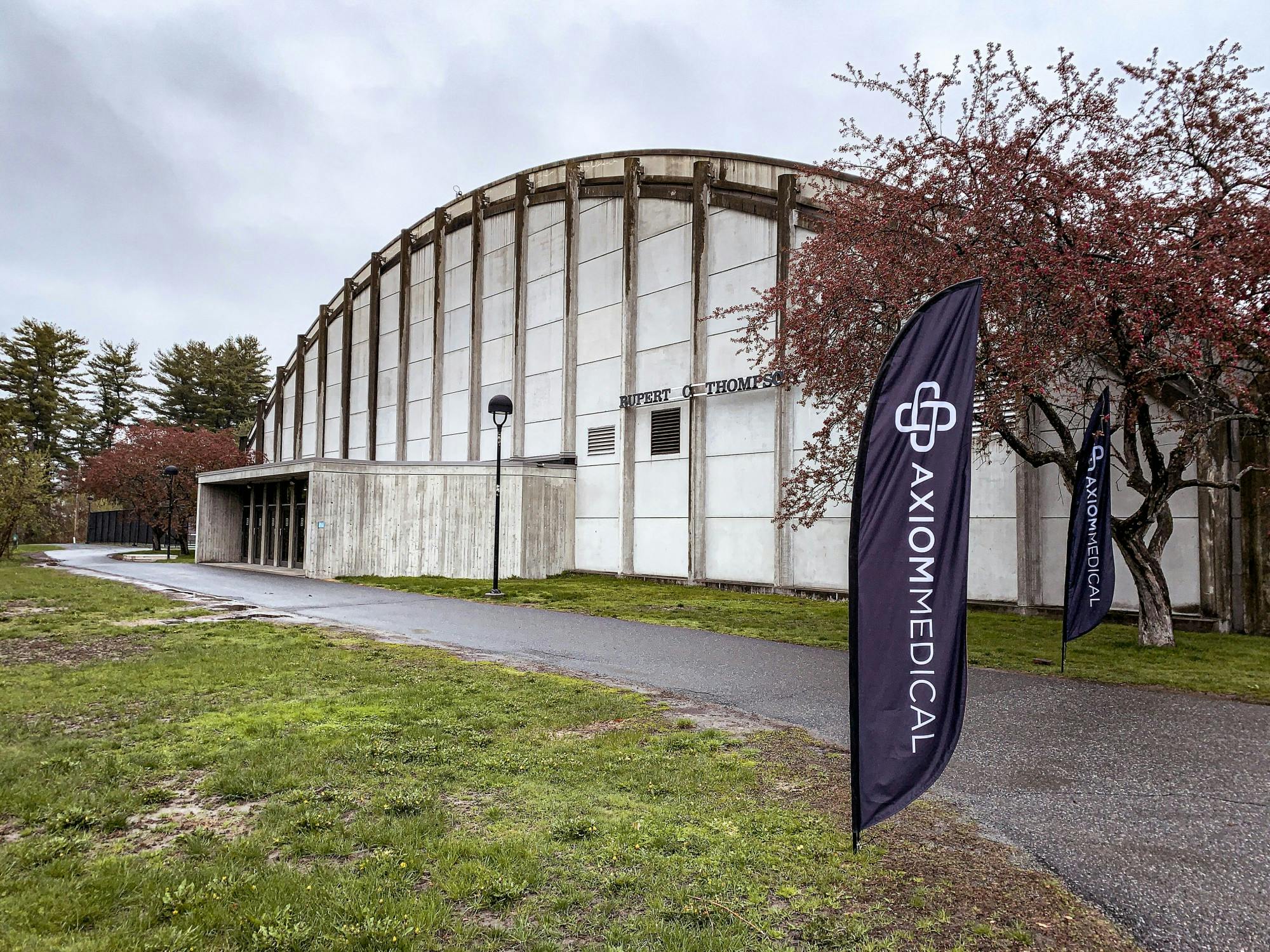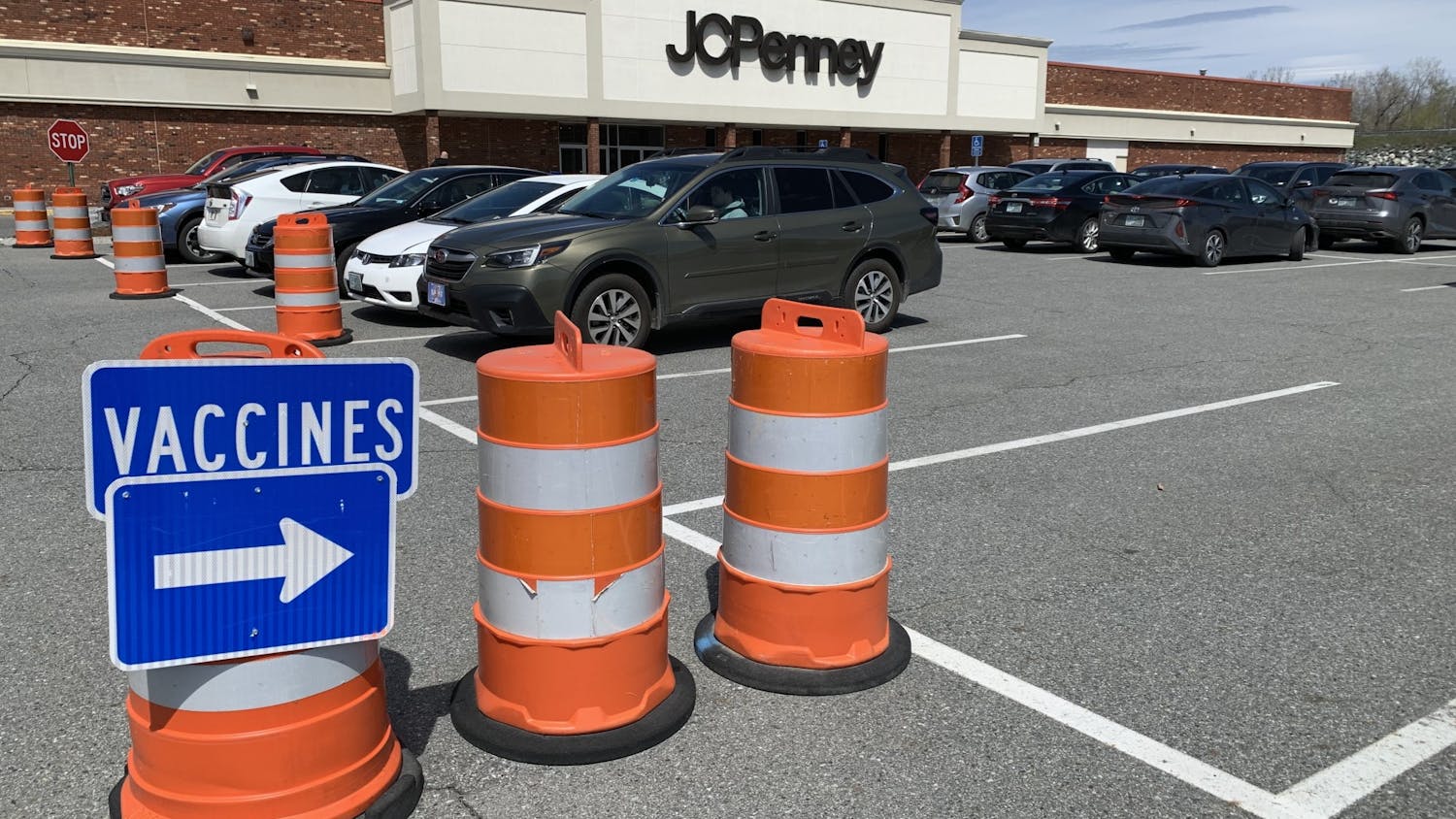As the number of people vaccinated continues to rise across the country, the College has released a new “Vaccine Data Reported” section on the COVID-19 dashboard tracking the number of students, faculty and staff that have been vaccinated. This section, added in early May, marks a new stage in the COVID-19 dashboard’s evolution, which members of the community rely on to gauge the College’s success in responding to the virus.
As of Tuesday, the vaccine dashboard reported that 1449 students — out of 6,670 total — and 948 faculty and staff members — out of 4,434 total — have been vaccinated and submitted documentation of their vaccination to the College. The dashboard also shows that, taken together, those figures represent 22% of the total Dartmouth community.
According to an email statement from College spokesperson Diana Lawrence, the idea for a vaccine dashboard “was first floated in January, and as the need to understand and share information about herd immunity in our community became paramount, [the College] made the addition.”
A recent report from the Yale School of Medicine posited that between 70 and 85% of the population would need to be vaccinated to reach herd immunity. Increasing the number of vaccinated members of the Dartmouth community may hail the widely hoped-for return to normalcy.
For students like June Dong ’22, a member of the Dartmouth Coalition for Global Health, the vaccine dashboard serves a crucial role as both a source of optimism and a possible incentivizing tool.
“If we can achieve a high percentage of vaccinated on-campus students, to the point where we reach herd immunity, I think that would make everyone feel a lot better, and maybe even open things up,” Dong said. “But also if students and faculty see that so many people are getting vaccinated, if they are on the fence in any way, it might prompt people to say to themselves, ‘Oh, shoot, I also need to get my vaccine.’”
However, the delayed implementation of the vaccine dashboard — almost five months after New York nurse Sandra Lindsay became the first American to receive an approved vaccine — left some students scratching their heads and led others to generate alternative ways to track vaccine statistics. On Librex, a popular anonymous discussion app, some users circulated a link to a student-run website tracking vaccine statistics. On the site, Dartmouth students could input whether they had received their first or second shots, as well as the dates of those shots.
Since the inception of the dashboard’s vaccine tracking, the figures on it have been steadily increasing. However, to many within the Dartmouth community, the vaccination figures on the dashboard are lower than they expected. Biology professor Michael Hoppa noted that the statistics don’t seem to reflect what he has witnessed among his peers.
“I don't know of a single faculty member in my department who's not at least gotten a first shot.” Hoppa said. “So, out of the 27 people I'm aware of in our department, if we're at least at 27 for 27, it doesn’t seem to quite line up with the numbers on the vaccine dashboard.”
The appearance of low vaccination rates may be a result of two factors. First, students and faculty have to submit pictures of their vaccine cards to the College on their own accord without much prompting from the College. Second, the numbers on the dashboard only reflect fully vaccinated people — those who are at least two weeks past the date of their second dose of the Moderna or Pfizer vaccines or their single dose of the Johnson & Johnson vaccine.
“Admittedly, I only registered [my vaccination status with the College] after [The Dartmouth] asked me to be interviewed, because I didn't know it was finally open,” Hoppa said. “I had heard that we were eventually going to track who was vaccinated, but I wish when I went to log my temperature to come to campus that it would have just said, ‘Hey, we'd like you to tell us if you have or had not been vaccinated,’ because it went under the radar for me.”
Although Hoppa acknowledges that the College likely notified him with an email, he said the sheer amount of emails most faculty receive daily make it extremely difficult to notice every message from the College. Some days, Hoppa said, he receives over 300 emails, which, as he puts it, creates “a bit of a filter problem.”
Students also struggle with this same issue, and many say they have not been made fully aware of the vaccine dashboard or how to submit their data. Ethan Litmans ’24 just received his first dose during the on-campus clinic this past week, and thinks he received a notice from the College about submitting proof but still is “not sure” how to submit proof of his vaccination. He said that he has only heard about how to do it from friends and would have liked more reminders from the College.
“If they're going to say to students that we're only going to open up campus if you all are vaccinated,” Litmans said. “Then they need to be doing a way better job at showing us that data and showing us when that's going to be possible, which includes displaying the number of first doses.”




